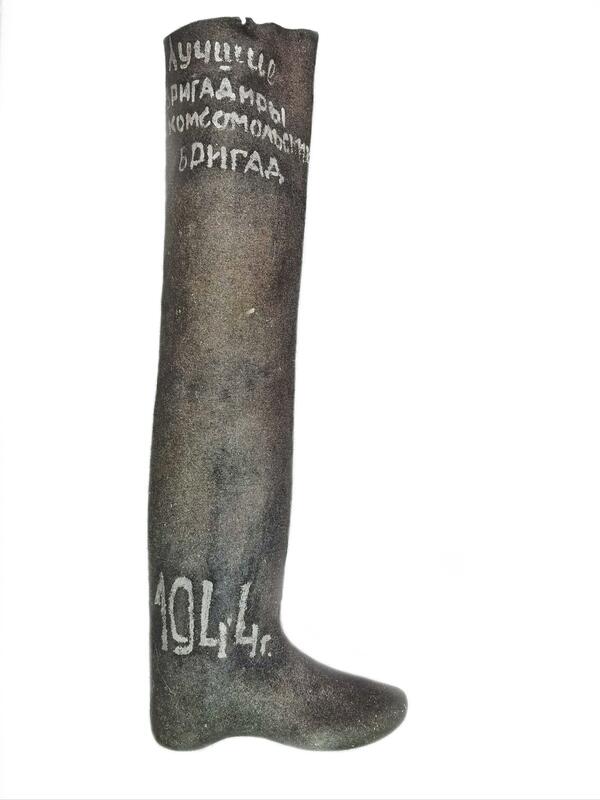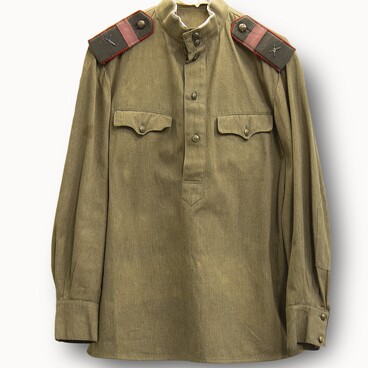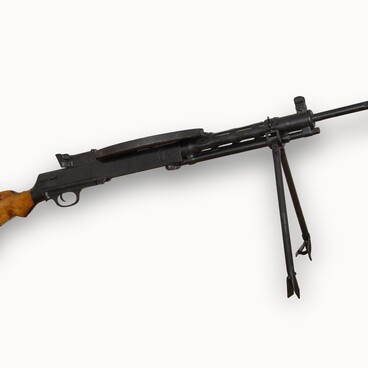The history of the Chelyuskinites Felt Boots Factory can be traced back to 1917 when the Treugolnik Artel was formed on Beregovaya Street in Zarechye, Tyumen. Back then, 50 employees of the artel “made 50 pairs of felt boots by hand every day.”
In 1919, the artel was renamed the Pimy Artel (from the word “pimy” also meaning “felt boots”), and in 1920 — the Koshma Factory (from the word “koshma” meaning “felt made of sheep wool”). In 1926, a factory was organized based on the artel, and in the spring of 1932, the construction of the new facilities began in northeastern Tyumen, on the site of a former slaughterhouse. On June 24, 1934, the Felt Boots Factory was put into operation, and seven days after the meeting of the Chelyuskinites, the chairman of the regional executive committee announced that the new factory would be named after them.
The street where the enterprise was located was named Fabrichnaya (Factory) Street. At the beginning of the Great Patriotic War, the Kursk Machine-Building Plant “Textilvalmash” was evacuated to Tyumen and was located on the territory of the factory, which was transformed into a plant.
Along with military goods, the plant produced components for agricultural machinery and equipment for the felting and textile industries. In 1942, despite the rough working conditions, the plant’s employees constructed a new 800-meter-long local railway.
During the Great Patriotic War, about 2 million pairs of new high-quality felt boots were sent to the front from this railway, along with an additional million pairs of repaired boots. Bootmakers repaired numerous felt boots that had been worn out during military campaigns.
In 1944, the first regional meeting of young agricultural leaders took place. In honor of this event, the Chelyuskinites Felt Boots Factory created a souvenir — a large felt boot. During that time, 885 Komsomol and front-line crews worked at Tyumen enterprises.
During the seasons of sowing, harvesting, and grain delivery, 46,000 young workers worked on the fields of collective and state farms, with 12,000 of them being Komsomol members. Many workers surpassed their targets as the Great Patriotic War continued.
In 1919, the artel was renamed the Pimy Artel (from the word “pimy” also meaning “felt boots”), and in 1920 — the Koshma Factory (from the word “koshma” meaning “felt made of sheep wool”). In 1926, a factory was organized based on the artel, and in the spring of 1932, the construction of the new facilities began in northeastern Tyumen, on the site of a former slaughterhouse. On June 24, 1934, the Felt Boots Factory was put into operation, and seven days after the meeting of the Chelyuskinites, the chairman of the regional executive committee announced that the new factory would be named after them.
The street where the enterprise was located was named Fabrichnaya (Factory) Street. At the beginning of the Great Patriotic War, the Kursk Machine-Building Plant “Textilvalmash” was evacuated to Tyumen and was located on the territory of the factory, which was transformed into a plant.
Along with military goods, the plant produced components for agricultural machinery and equipment for the felting and textile industries. In 1942, despite the rough working conditions, the plant’s employees constructed a new 800-meter-long local railway.
During the Great Patriotic War, about 2 million pairs of new high-quality felt boots were sent to the front from this railway, along with an additional million pairs of repaired boots. Bootmakers repaired numerous felt boots that had been worn out during military campaigns.
In 1944, the first regional meeting of young agricultural leaders took place. In honor of this event, the Chelyuskinites Felt Boots Factory created a souvenir — a large felt boot. During that time, 885 Komsomol and front-line crews worked at Tyumen enterprises.
During the seasons of sowing, harvesting, and grain delivery, 46,000 young workers worked on the fields of collective and state farms, with 12,000 of them being Komsomol members. Many workers surpassed their targets as the Great Patriotic War continued.



